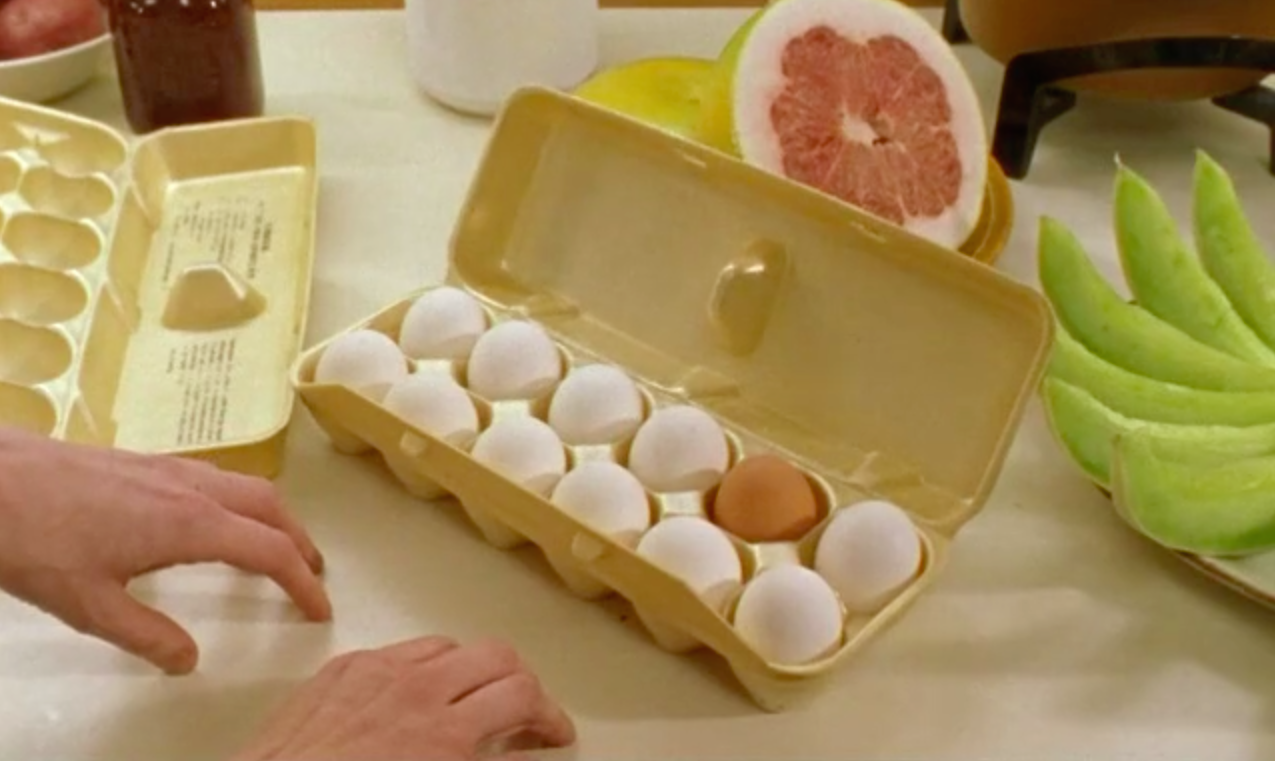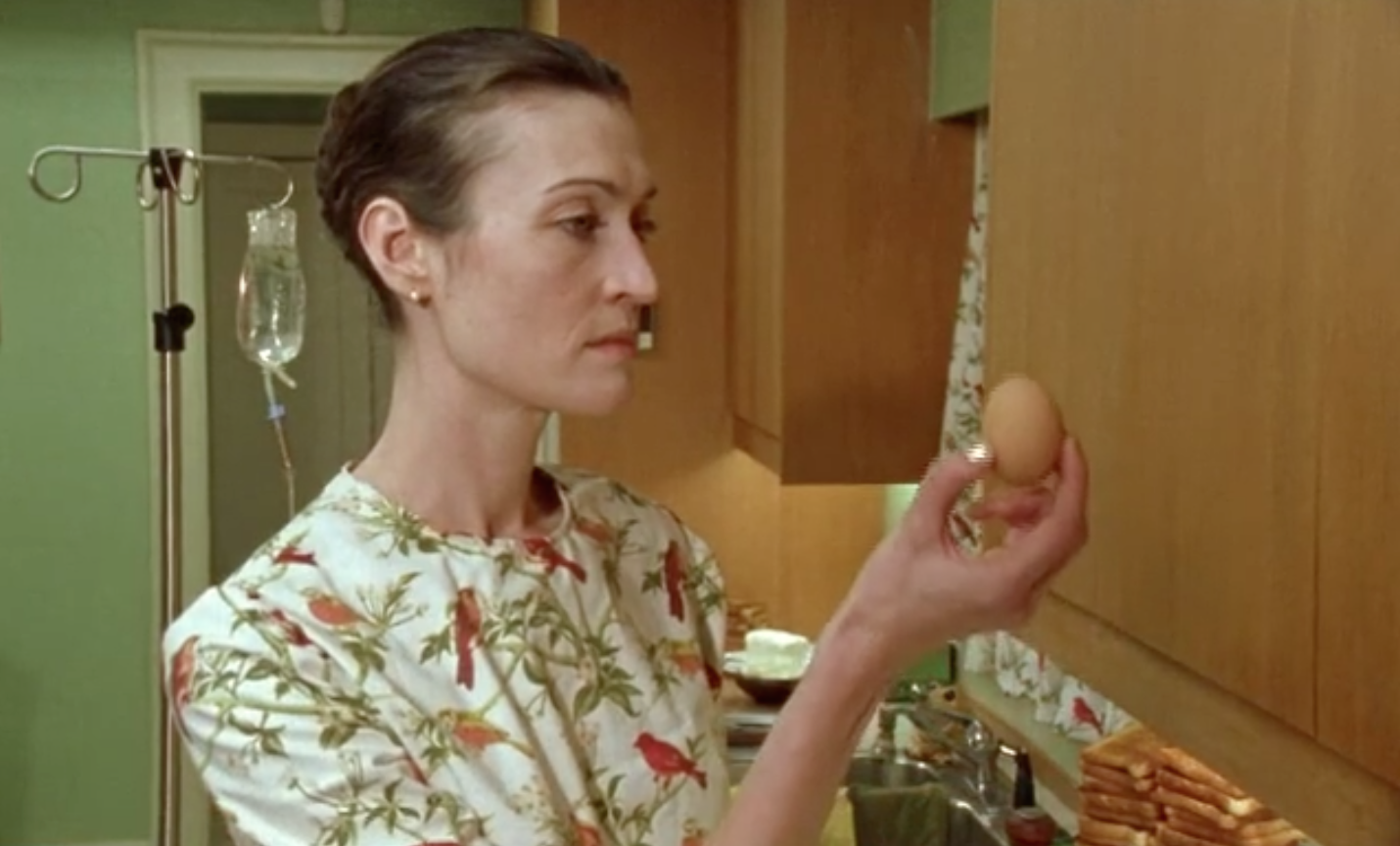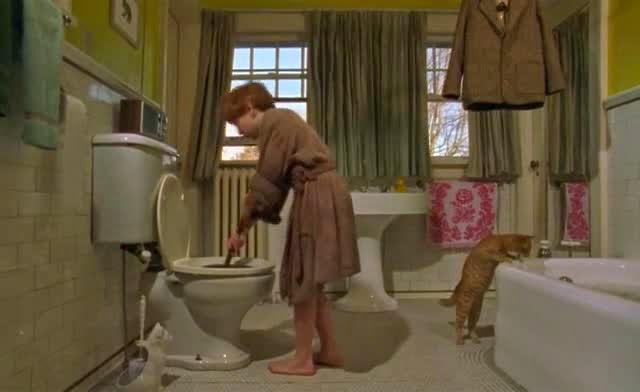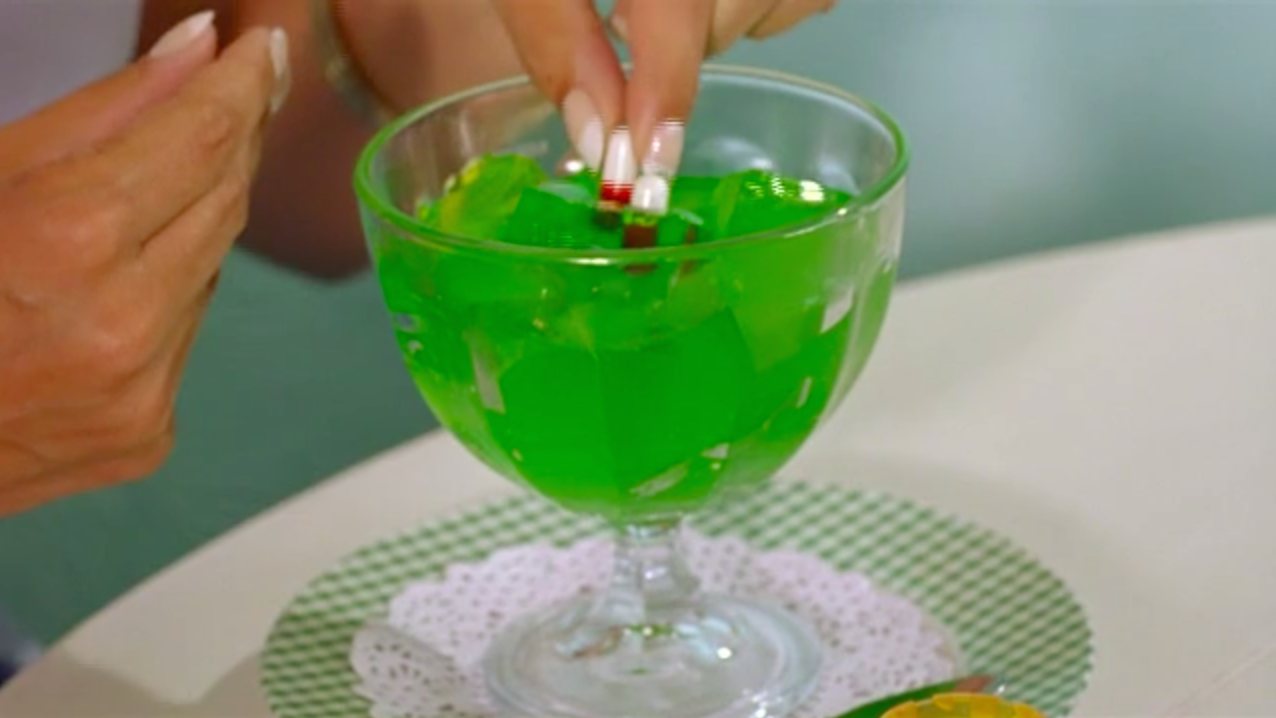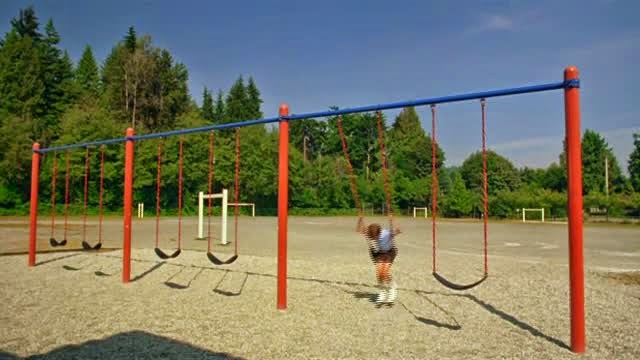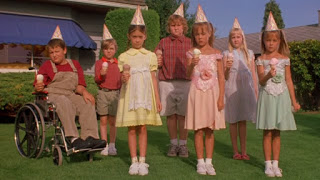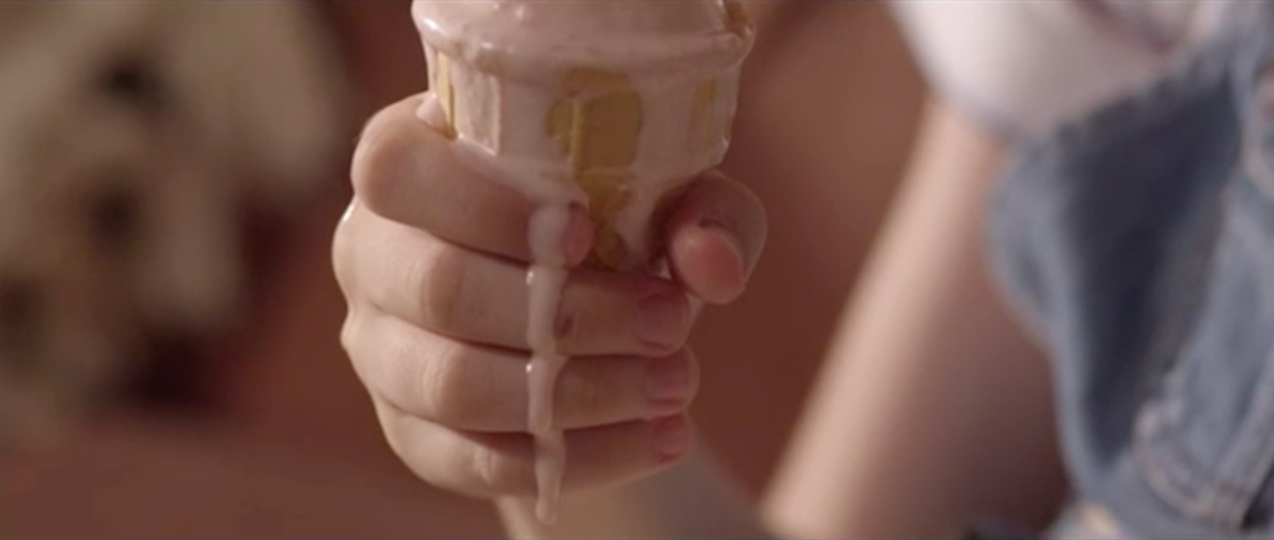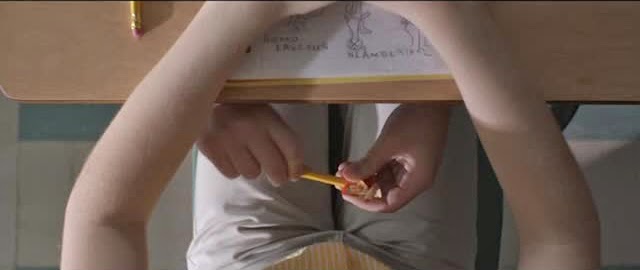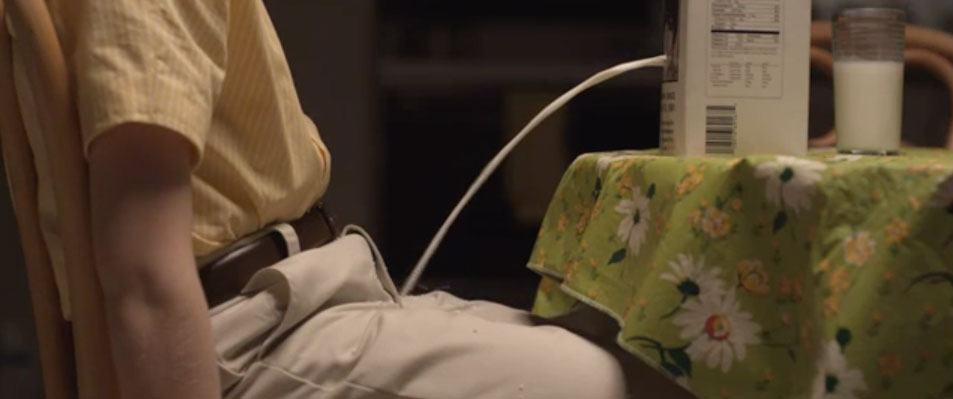For this week's Best Shot episode, the last 'detour' before the final three classics for the season, I wanted to introduce all of you to the short films of Jamie Travis. The Canadian filmmaker has only made one feature, the phone sex comedy For a Good Time, Call... (2012) and he's been making a living with commercials and the MTV series Faking It of late. His true claim to fame and the reason we should all root for bigger feature film things to come are his two short film trilogies.
 Jamie Travis and the trilogy that hooked me
Jamie Travis and the trilogy that hooked me
I first became obsessed with his work when I was on a festival jury and saw the first film in the Patterns trilogy, a trilogy which might be semi-accurately described as a fusion of Lynchian nightmare, oddball musical, and romantic dramedy. A few years ago I geeked out and embarrassed myself when I met him at a retrospective of his work at the Nashville Film Festival. It's not every short filmmaker who wins shamelessly adoring fans and festival retrospectives of their work!
For Best Shot, we're looking at his first trilogy 'the Saddest Children'. The films are only related by subject matter but they're worth watching in order because they get better and better and give you the opportunity to watch an artist perfect his original voice. What follows is my short write up on each film, followed by the Best Shot choices on other fine blogs. Click on those photos to be transported to the adjacent articles and make sure to watch the films themselves. As per usual reading other pieces makes me think "why didn't I see, respond to, or get that in that way?!" which is half the reason I love doing this series.
WHY THE ANDERSON CHILDREN DIDN'T COME TO DINNER (2003)
In which three morose seven year-olds long to escape the mother who keeps overfeeding them...
 Nathaniel's choice for best shot watch this short on Vimeo, winner of nine festival awards
Nathaniel's choice for best shot watch this short on Vimeo, winner of nine festival awards
Yes, I chose a cat (shut up) but it's not from lacking for options. Why the Anderson Children Didn't Come To Dinner may be Anderson's weakest short, made while he was still in film school, but it introduces his favorite theme (mysteriously emphatic depression) and several recurring elements of his visual style from fetish objects (in this short's case: balloons, eggs, and cats) to highly elaborate production design. Most multi-hypenate talents like Travis are referred to simply as writer/directors but I think of Travis mostly as a production designer/director. The elaborately designed aesthetic, the sad talented children, and this short's title may be why he's sometimes compared to Wes Anderson but, they're quite different tonally. It's more of a surface similarity given the anal retentive set decoration lending a storybook diorama affect.
This first shot doesn't offer as much on repeat viewings as his subsequent features so why not focus on the visual precision. This cat possibly meets a grisly end (not that this is a literal film) so it's oddly comforting that she's immortalized in his human's room, and mirroring the portrait of herself. The color is so incredibly perfect; look at the swooping curve of brilliant floating blots of orange among the rigid vertical greens.
other choices... click on the photos for the adjacent articles
THE SADDEST BOY IN THE WORLD (2006)
in which a nine year old boy considers suicide at his birthday party...
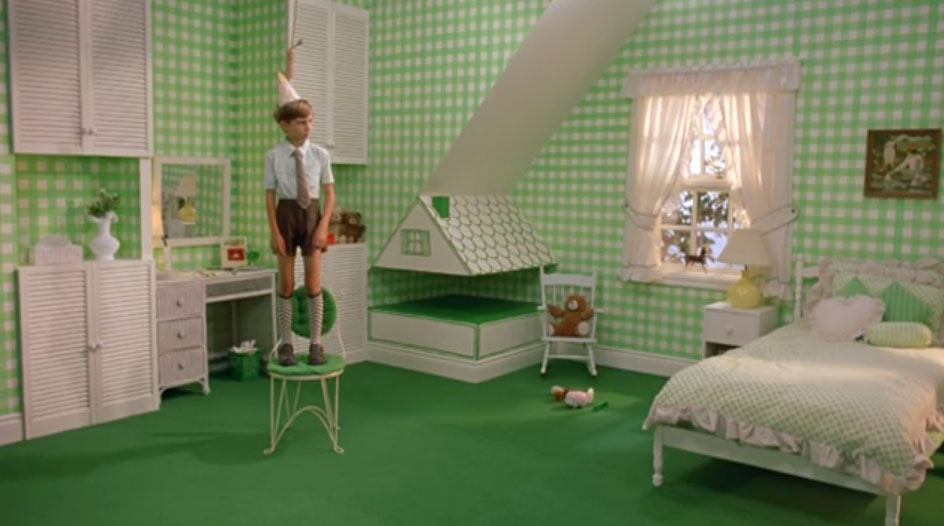 Nathaniel's choice for Best Shot. Watch the short on vimeo. winner of four festival awards
Nathaniel's choice for Best Shot. Watch the short on vimeo. winner of four festival awards
The Saddest Boy in the World opens with a nine year-old tightening a noose around its neck, a bold and some might say completely distasteful image. What follows is a short that's just about perfectly realized and those on its wavelength will love it. This morbid comedy, much funnier on repeat viewings (trust), is about a friendless boy suffering through his awful birthday party with neighborhood kids who hate him. Inbetween the birthday party scenes he tells his highly dramatic flashback stories in a voiceover that can only be described as the vocal equivalent of a shy perpetual sigh; he's even too depressed to act the drama queen he totally is. (Benjamin B. Smith, a child actor who had previously done several commercials, is pretty great in the leading role though he apparently never acted again after 2006).
I chose this image because it's a visual recall to the bold opening gambit and because of the absurd blackly comic mid-film addition of that birthday hat. Short films gain enormously from strong editing (Jason Schneider did the honors here) and the cuts surrounding this image from suicidal thoughts to a sudden ice cream truck run are awesome. I nearly chose one of several images from the next scene when the cinematography Amy Belling makes great use of the incongruous sunshine on this very dark joke.
other choices... click on the photos for the adjacent articles
THE ARMOIRE (2009)
In which a twelve-year-old boy's best friend goes missing. Can hypnosis solve the mystery?
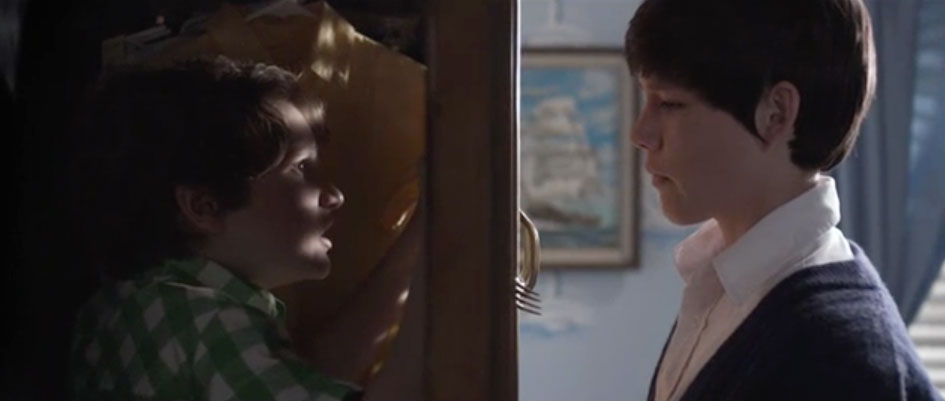 Nathaniel's choice for best shot. Watch this film on Vimeo
Nathaniel's choice for best shot. Watch this film on Vimeo
You liked it in there before, didn't you?
This was initially the hardest of Travis's shorts to love - it's the longest, least colorful and most serious - but I was wrong about it at first. Five years later I wonder if it isn't the best or at least most substantive of his several shorts. It holds up to repeat viewings and is the most overtly queer in its sensibility and image-making. It's fascinating that as these child protagonists age from short to short, Travis's confidence and gifts as a filmmaker also mature. Aaron (William Cuddy) is more functional than the previous sad children but he's also, in his own way, more disturbing despite that innocent face and angelic singing voice.
Several images stick and there are some wonderfully subtle production design touches in various backgrounds. Still, I like this more basic one for its faux split screen effect, effectively contrasting the two boys at the center of the plot. It's also the baldest display of Armoire as metaphor for private desires and as-yet unvocalized queerness. This film builds in power as it goes culminating in a suggestive glimpse of the power dynamics in Aaron's friendship with Tony. It's not just the top bunk they fight for on sleepovers.
other choices... click on the photos for the adjacent articles
Next on 'Hit Me With Your Best Shot' - final three films!
more on short films
